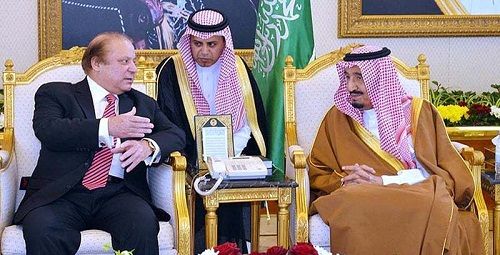The twentieth-century realist and expert of International Relations, Hans Morgenthau devised three ways of ensuring peace: by imposing limitations, by a complete transformation of the system and by diplomacy.
Pakistan chose the third option from Morgenthau’s list and embarked upon its diplomatic voyage to oil the friction between the Iran and Saudi Arabia. Being the neighbor of Iran and the most trusted friend and beneficiary of Saudi Arabia; Pakistan is to secure the regional peace and its national interests linked with both the oil-rich states. The step can also be called as ‘Diplomatic Return of Pakistan’ after the civil and military leadership of the country decided to pay a visit to Saudi Arabia and Iran.

The year 2016 started with a spark arising in the Middle East from the diplomatic friction between Iran and Saudi Arabia after the latter hanged a Shia cleric ‘Sheikh Al-Nimr’ at the annoyance of the former. Believed to be an active critic over Saudi Monarchy, Sheikh Nimr was sentenced to death for procuring ‘Foreign Meddling and Taking up Arms against the Security Forces’. His hanging on 2nd January was followed by massive demonstrations in various countries and ransacking of the Saudi embassy in Iran. At this, the Kingdom cut off diplomatic ties with Iran.
The answer to the question over the possible results of his diplomatic effort of Pakistan can be analyzed with these points;
- Pakistan can be successful in soothing the contemporary rift between Iran and Saudi Arabia but without suppressing the deep ideological differences between the two states.
- Though Pakistan is trying to maintain a neutral outlook in the matter, the record shows that it has an obvious tilt towards Saudi Arabia. This can affect the efforts of the diplomatic mission if a balance is not maintained this time when Pakistan equally needs Iran for trade and energy projects. A clear shift on any of the sides will benefit none of the three.
- The complete success of the mission is skeptical, but the thing which is confirmed is that it is providing Pakistan with a chance to be out of its diplomatic dormancy and strengthen its say in the Muslim World.
- Lastly, Pakistan will not need too much effort as Iran and Saudi Arabia have already clarified that they are not in positions to escalate this rift to the level of war.
Iran is recently out of economic sanctions imposed on it by the international community. It is working primarily for the rehabilitation of its crumpled economy. It can’t afford a long rift when Saudi Arabia is backed by a majority of the Gulf States. The Saudis are already engaged in battle with Houtis in Yemen and looking towards Pakistan for support which the latter clearly declined. Now when a Saudi-led 34 nation ‘Islamic Military Alliance’ has been founded to counter terrorism in the region, the Kingdom lacks any justification to imbalance the regional stability.
In a compact, Pakistan’s effort is timely and along with calming down the regional tension, for now, it will yield more result for the country itself rather than ensuring a permanent source of detente for both the Middle Eastern powers. But whatever the case is going to be, Saudia Arabia and Iran also need to act wisely and refrain from any conflict when the Middle East is already fighting several civil wars and a global war against the terror of ISIL.